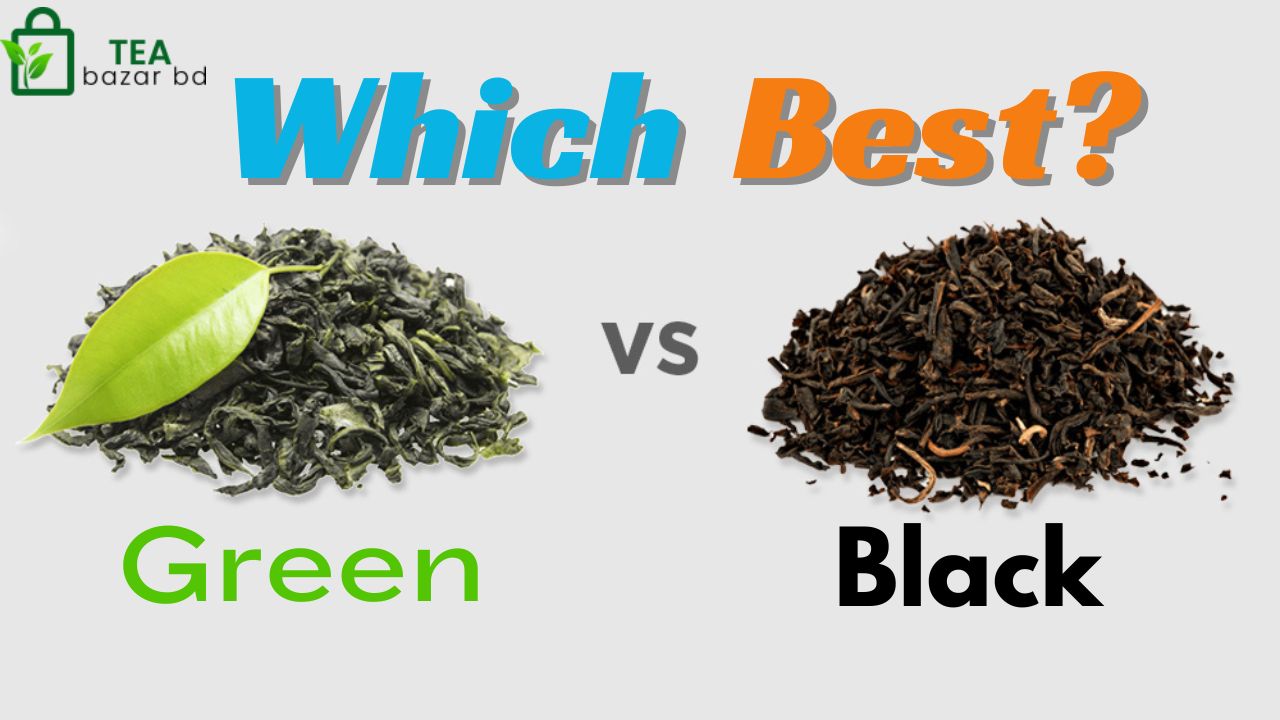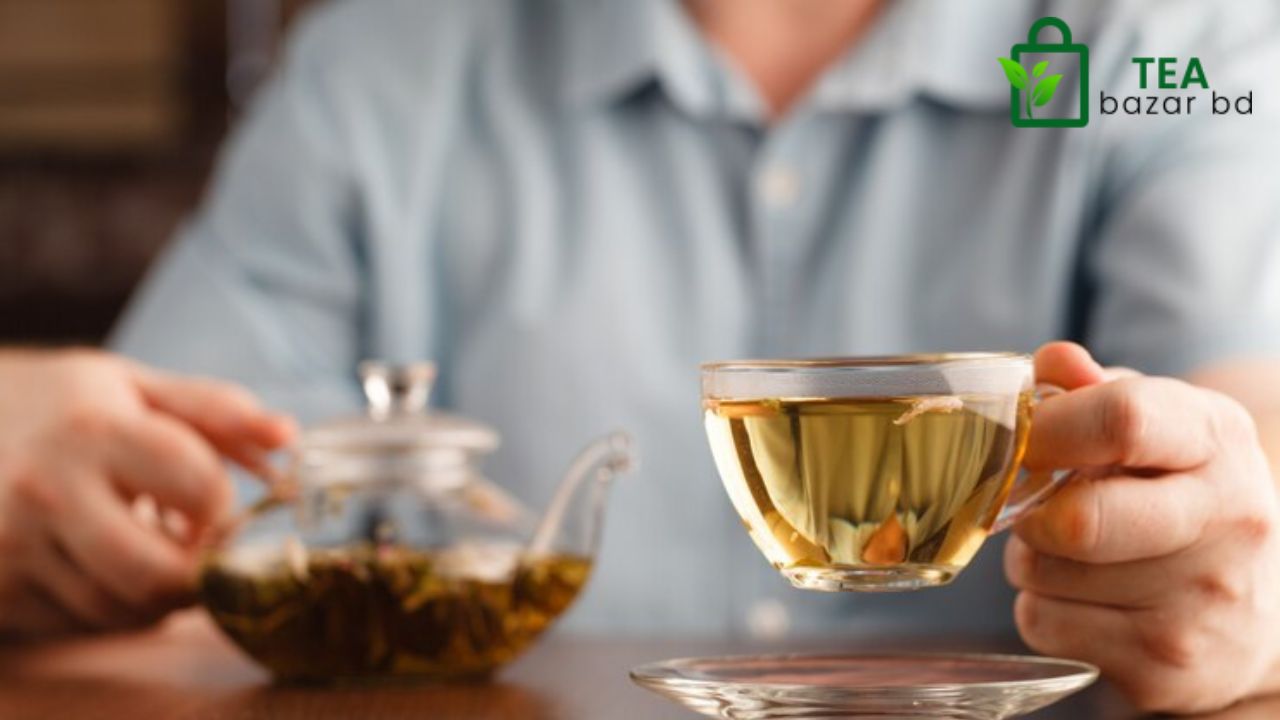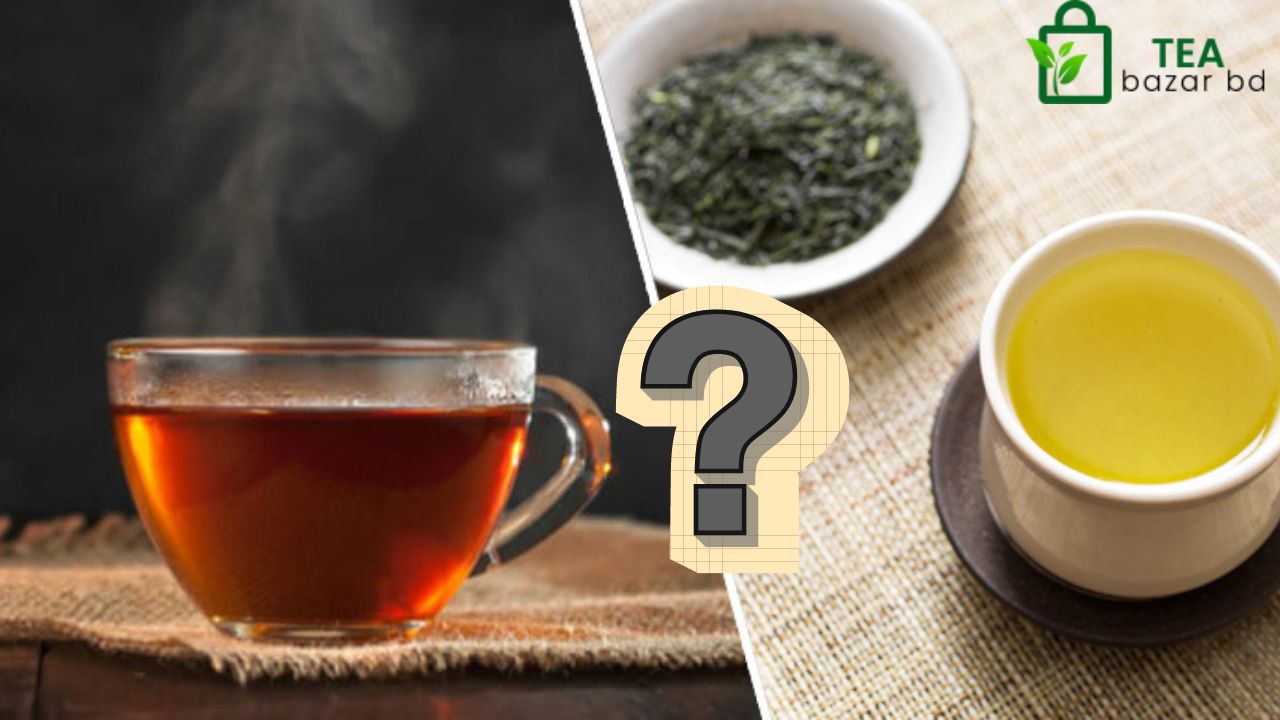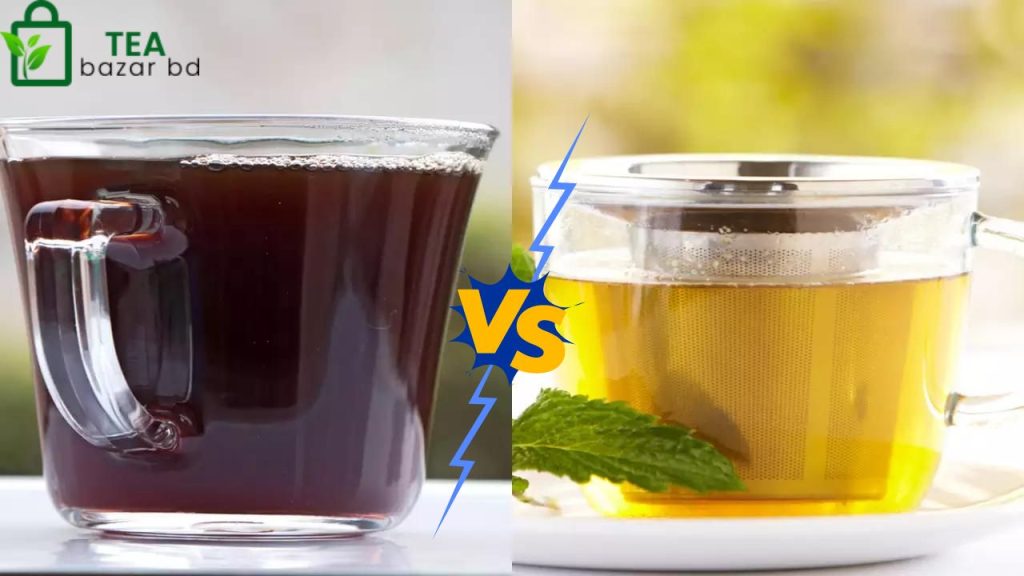The Battle of Antioxidants: Comparing Black Tea and Green Tea
In the realm of antioxidants, the clash between black tea vs green tea unfolds an intriguing narrative of health benefits and flavor distinctions. Both black tea and green tea, derived from the Camellia sinensis plant, boast significant antioxidant content, pivotal in combating oxidative stress and promoting overall well-being. However, their processing methods create distinctive characteristics. Black tea undergoes full oxidation, resulting in its deep color and robust flavor profile, while green tea’s minimal oxidation preserves its natural green hue and delicate taste. While both teas offer commendable antioxidant protection, studies suggest that green tea may edge slightly ahead in antioxidant potency due to its minimal processing. Yet, the ultimate choice between black tea and green tea rests on individual preferences, with each offering a unique sensory experience and potential health advantages.
Caffeine Clash: Which Packs a Greater Punch – Black Tea or Green Tea?

In the caffeine clash of black tea vs green tea, discerning which packs a greater punch is a matter of processing and preference. Both black tea and green tea, derived from the Camellia sinensis plant, contain caffeine, a stimulant known for its energizing effects. However, their processing methods result in varying caffeine levels. Black tea, undergoing full oxidation, typically contains higher caffeine content compared to green tea, which undergoes minimal oxidation. This disparity in processing translates to black tea often providing a stronger caffeine kick. Nonetheless, individual tolerance and brewing methods also influence caffeine intake. Some may prefer the boldness of black tea’s caffeine content, while others opt for the gentler lift of green tea. In the caffeine clash, the choice between black tea and green tea ultimately hinges on one’s caffeine tolerance and desired level of stimulation.
Flavor Face-Off: Exploring the Taste Profiles of Black Tea vs Green Tea
In the flavor face-off between black tea vs green tea, delving into their taste profiles unveils a world of contrasting flavors and aromas. Black tea, having undergone full oxidation during processing, tends to offer robust, malty, and sometimes even smoky notes, alongside a rich and full-bodied texture. On the other hand, green tea, with its minimal oxidation, boasts a fresher, grassier taste, often accompanied by hints of sweetness or vegetal undertones. The flavor spectrum of each tea is vast and diverse, influenced by factors such as variety, growing conditions, and processing techniques. Whether one prefers the boldness of black tea or the delicate nuances of green tea depends on individual palate preferences and desired sensory experiences. In the flavor face-off, black tea and green tea emerge as distinct contenders, each offering a unique and delightful taste journey for tea enthusiasts to explore.
Health Benefits Showdown: Analyzing the Wellness Effects of Black Tea and Green Tea

In the health benefits showdown of black tea vs green tea, dissecting the wellness effects reveals a wealth of potential advantages associated with both beverages. Black tea and green tea, originating from the Camellia sinensis plant, are revered for their antioxidant properties, which help combat oxidative stress and reduce the risk of chronic diseases such as heart disease and cancer. Additionally, both teas contain polyphenols and catechins, which contribute to various health benefits including improved heart health, enhanced cognitive function, and potentially even weight management. While green tea is often lauded for its higher concentration of certain antioxidants due to minimal oxidation during processing, black tea offers its own array of health-promoting compounds. Ultimately, the choice between black tea and green tea for health benefits may hinge on individual health goals and taste preferences, with both teas offering potential wellness boosts for avid tea drinkers.
The Brewing Dilemma: Which Tea Requires More Attention – Black or Green?

In the brewing dilemma of black tea vs green tea, the question arises: which tea requires more attention? The answer lies in understanding the unique characteristics of each variety. Black tea, having undergone full oxidation, typically withstands higher temperatures and longer steeping times without becoming bitter, making it more forgiving in terms of brewing. On the contrary, green tea’s delicate leaves are more sensitive to heat and over-steeping, requiring careful attention to avoid bitterness and preserve its nuanced flavors. With green tea, the water temperature should be lower, and steeping time shorter, to extract its optimal taste profile. While both black tea and green tea demand attention to detail in brewing, mastering the art of brewing each variety ensures a satisfying cup that showcases the distinctive qualities of these beloved teas.
Weight Loss Wars: Investigating the Role of Black Tea and Green Tea in Shedding Pounds
In the weight loss wars between black tea vs green tea, exploring the role of these beverages in shedding pounds unveils intriguing insights. Both black tea and green tea have been associated with potential weight management benefits, thanks to their bioactive compounds and antioxidant properties. Green tea, in particular, has garnered attention for its high concentration of catechins, which are believed to promote fat oxidation and boost metabolism. Additionally, green tea may aid in appetite control, potentially contributing to reduced calorie intake. On the other hand, black tea’s effects on weight loss are also noteworthy, with studies suggesting that its polyphenols may support fat metabolism and weight management. While neither tea is a miracle solution for weight loss, incorporating black tea or green tea into a balanced diet and exercise regimen may offer complementary support on the journey to achieving weight loss goals.
Tea Time Rituals: Cultural Perspectives on Black Tea vs Green Tea
Tea time rituals offer a fascinating lens through which to explore cultural perspectives on black tea vs green tea. In many cultures worldwide, tea serves as more than just a beverage; it embodies traditions, customs, and social connections. Black tea holds a significant place in Western tea ceremonies and British culture, often associated with afternoon tea rituals and accompanied by milk and sugar. On the other hand, green tea holds deep cultural roots in East Asian countries like Japan and China, where elaborate tea ceremonies highlight its purity and connection to nature. These ceremonies emphasize mindfulness, respect for nature, and the art of tea preparation. The choice between black tea and green tea often reflects cultural heritage, with each variety offering a unique sensory experience that reflects the values and traditions of its respective culture.
The Science Behind the Leaves: Unraveling the Composition of Black Tea and Green Tea
The science behind the leaves delves into the composition of black tea vs green tea, unraveling the intricate differences between these two beloved beverages. Both black tea and green tea originate from the Camellia sinensis plant, but their distinct processing methods lead to varying compositions. Black tea undergoes full oxidation, a process that results in the formation of complex flavor compounds such as theaflavins and thearubigins, contributing to its bold taste and dark color. Conversely, green tea retains its natural green hue and delicate flavor profile due to minimal oxidation, preserving high levels of catechins and other antioxidants. These antioxidants, particularly epigallocatechin gallate (EGCG), are credited with numerous health benefits associated with green tea consumption. Understanding the science behind black tea and green tea composition sheds light on their unique qualities and potential health effects, empowering tea enthusiasts to make informed choices based on their preferences and wellness goals.
Digestive Duel: Which Tea Is Gentler on Your Stomach – Black or Green?
In the digestive duel of black tea vs green tea, discerning which tea is gentler on your stomach is a nuanced exploration. While both black tea and green tea contain caffeine and tannins, compounds that can potentially irritate the stomach lining in sensitive individuals, their effects vary depending on factors such as brewing method, personal tolerance, and overall health. Generally, green tea is perceived to be milder on the stomach due to its lower caffeine content and higher levels of polyphenols, which may have protective effects on the gastrointestinal tract. However, some individuals may find black tea more soothing, particularly if they have a sensitivity to the grassy or vegetal flavors of green tea. Ultimately, the gentleness of black tea vs green tea on the stomach is subjective and may differ from person to person. Experimentation and mindful consumption can help individuals determine which tea best suits their digestive needs and preferences.
Environmental Impact: Comparing the Sustainability of Black Tea and Green Tea Production
When considering the environmental impact, comparing the sustainability of black tea vs green tea production reveals distinct nuances in cultivation and processing methods. Both black tea and green tea originate from the Camellia sinensis plant, but their production processes differ significantly. Green tea typically undergoes minimal oxidation, requiring less energy and processing compared to black tea, which undergoes full oxidation. Additionally, green tea cultivation often involves more traditional and organic farming practices, reducing the reliance on chemical inputs and promoting soil health. However, factors such as transportation, packaging, and waste management also contribute to the overall environmental footprint of tea production. Ultimately, assessing the sustainability of black tea vs green tea production requires a holistic approach that considers not only cultivation methods but also processing, packaging, and distribution practices. By making informed choices and supporting sustainable tea producers, consumers can minimize the environmental impact of their tea consumption.
The Art of Tea Blending: Crafting Unique Flavors with Black Tea and Green Tea
In the realm of the art of tea blending, the juxtaposition of black tea vs green tea offers an intriguing canvas for crafting unique flavors and sensory experiences. Blending different varieties of black tea and green tea allows tea artisans to play with a diverse range of aromas, tastes, and textures, resulting in blends that tantalize the palate and delight the senses. Black tea, with its bold and robust flavor profile, can provide a solid foundation for blends, lending depth and richness to the final product. Meanwhile, green tea’s delicate and grassy notes offer a refreshing contrast, adding brightness and complexity to the blend. Whether it’s pairing black tea with floral notes or combining green tea with fruity accents, the possibilities for tea blending are endless, limited only by the imagination of the blender. The art of tea blending celebrates creativity and craftsmanship, inviting tea enthusiasts on a journey of discovery and exploration through the diverse world of blended teas.
Beyond the Cup: Exploring Alternative Uses for Black Tea and Green Tea
Beyond the cup, exploring alternative uses for black tea vs green tea unveils a myriad of creative possibilities beyond traditional brewing methods. Both black tea and green tea contain beneficial compounds that extend their utility beyond mere beverage consumption. Black tea, with its rich tannins and antioxidant properties, can be repurposed for skincare treatments, offering benefits such as reducing inflammation and soothing sunburns. Similarly, green tea’s high concentration of polyphenols makes it a popular ingredient in homemade face masks and hair treatments, known for its ability to promote healthy skin and hair. Additionally, both teas can be incorporated into culinary creations, infusing dishes with their distinct flavors and healthful qualities. Whether used in marinades, desserts, or even cocktails, black tea and green tea add depth and complexity to a variety of recipes, showcasing their versatility in the kitchen and beyond. By exploring alternative uses for black tea and green tea, enthusiasts can unlock new dimensions of enjoyment and harness their beneficial properties in innovative ways.

